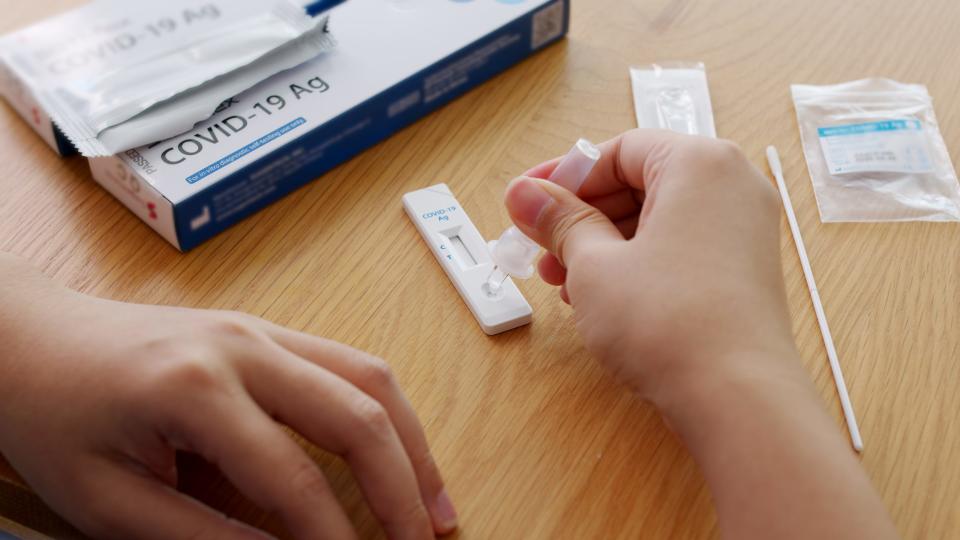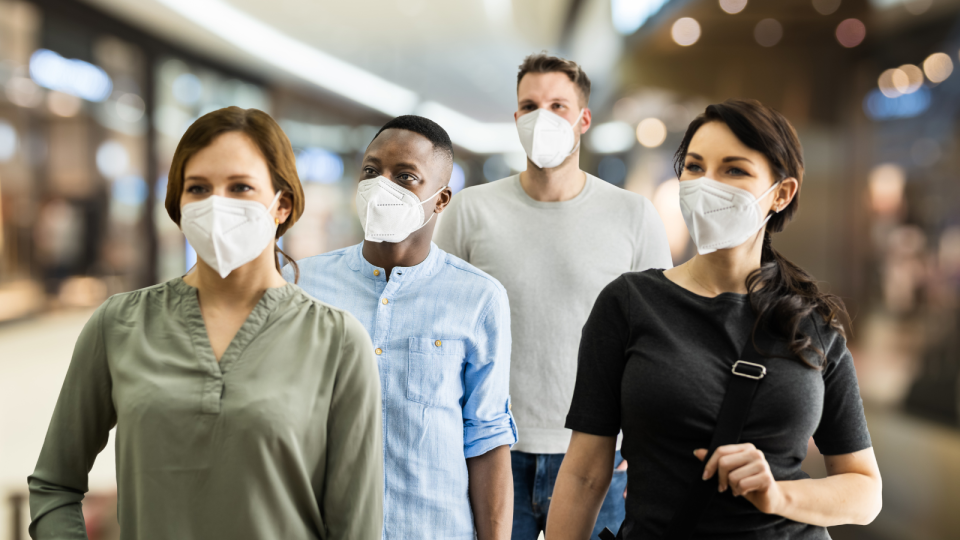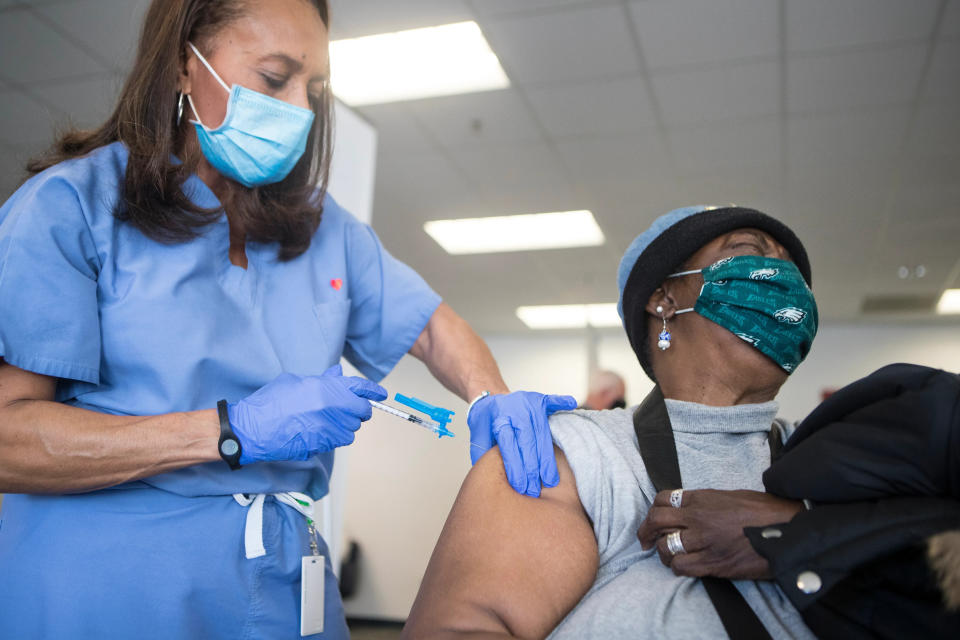COVID variant JN.1 is the most prevalent strain of the virus globally. What to know
As COVID-19 cases continue rising, JN.1 moves in as the variant accounting for the most cases worldwide.
On Dec. 8, the Centers for Disease Control and Prevention documented JN.1 as a quickly growing COVID-19 variant, suggesting that it is either more transmissible or better at evading immune systems.
Now, the CDC has deemed JN.1 “the most widely circulating variant” of COVID-19 in the United States and around the world.
Given the high activity of COVID-19, and the overall uptick in infections, hospitalizations and deaths in recent weeks, the CDC reports that JN.1 may be intensifying the spread of the virus this winter.
Details on COVID variant JN.1
JN.1 is a COVID-19 variant that descended from omicron and is closely related to BA.2.86, which saw high transmission in the fall and was one of the most prevalent strains of the virus during the season. JN.1 first appeared in the U.S. in September.
The CDC announced on Jan. 5 that JN.1 is estimated to account for approximately 62% of all currently circulating COVID-19 variants, an increase from two weeks ago when the variant was estimated to account for just 44% of cases.
Infection levels measured using wastewater and test positivity, which includes both symptomatic and asymptomatic infections, are estimated as being approximately 27% and 17% higher than the year before, respectively. Wastewater levels have also increased rapidly over the last several weeks.
Is COVID variant JN.1 more harmful than other variants?

The symptoms of JN.1 remain the same as other circulating variants. Symptoms may vary on an individual basis and depend more on a person’s health history and immunity rather than which variant they are infected with, according to the CDC.
Despite the high rate of transmission and the increase in COVID-19-related hospitalizations and deaths, there is no evidence that JN.1 causes more severe disease than other variants. In fact, COVID-19 infections are causing severe diseases less frequently than earlier in the pandemic.
The CDC reports that COVID-related illness requiring medical attention, like emergency department visit rates, have increased recently, but to a lesser degree than comparable timeframes in years past. These figures remain 21% lower than they were compared with the year before.
In terms of COVID-19-related hospitalizations, they were documented as 22% lower than the previous year, with the percentage of total deaths associated with COVID-19 38% lower than the previous year, according to the CDC’s Jan. 5 update.
When it comes to vaccinations, they are still reported as helping quell the spread of all COVID variants.
“Updated COVID-19 vaccines are expected to increase protection against JN.1, as they do for other variants,” said the CDC.
What does the increase in COVID transmission mean?

The current relationship between COVID-19 infection levels and illness severity is attributed to greater immune protection levels provided by prior infection, vaccines or both, according to the CDC.
Although prior infection can help fight off subsequent infections, the CDC notes that this immune protection can fade over time but tends to last longer for preventing severe disease than for preventing infections. As of Jan. 5, over 97% of people have natural or vaccine-induced antibodies against the virus that causes COVID-19.
The virus and its longer-term effects, such as long COVID, persist as important public health threats, especially for those at higher risk of severe illness.
How to stay safe

As COVID-19 and other respiratory illnesses like the flu and RSV continue spreading, keep in mind the easy ways you can protect yourself and others.
The Delaware Division of Public Health recommends the following actions to help Delawareans stay safe from COVID-19, RSV, the flu and any other respiratory viruses in local communities:
Get vaccinated for COVID-19, the flu and RSV if eligible.
Get tested if you have symptoms or were exposed to someone with a respiratory illness and seek treatment if you test positive.
Stay home if you are sick.
Consider wearing a mask as cases continue to rise or if you or someone close to you is immunocompromised.

A statewide or nationwide mask mandate is not currently in place, but hospitals around the country continue to introduce mask mandates as COVID-19 transmission increases.
In addition to those steps, the CDC adds that improving indoor air quality is one of the best ways to prevent COVID-19 transmission.
Opening windows on warmer days or using a portable air cleaner helps filter fresh air into your home and gets rid of stuffy airflow. If your home has a thermostat with a “fan” option, turn it from “auto” to “on” to keep air running continuously when you have guests stopping by.
Frequently washing your hands and social distancing in public are also advised.
Got a tip or a story idea? Contact Krys'tal Griffin at kgriffin@delawareonline.com.
COVID hospitalizations in Delaware: Delaware continues to see rise in COVID cases, hospitalizations after pre-holiday surge
What happened on Tuesday?: Where did Delaware get hit in Tuesday's storm? See some of the aftermath across the state
Measles update: Delawareans may have been exposed to measles at health provider amid Philadelphia outbreak
This article originally appeared on Delaware News Journal: What to know about JN.1 COVID variant, recent COVID transmission, more

